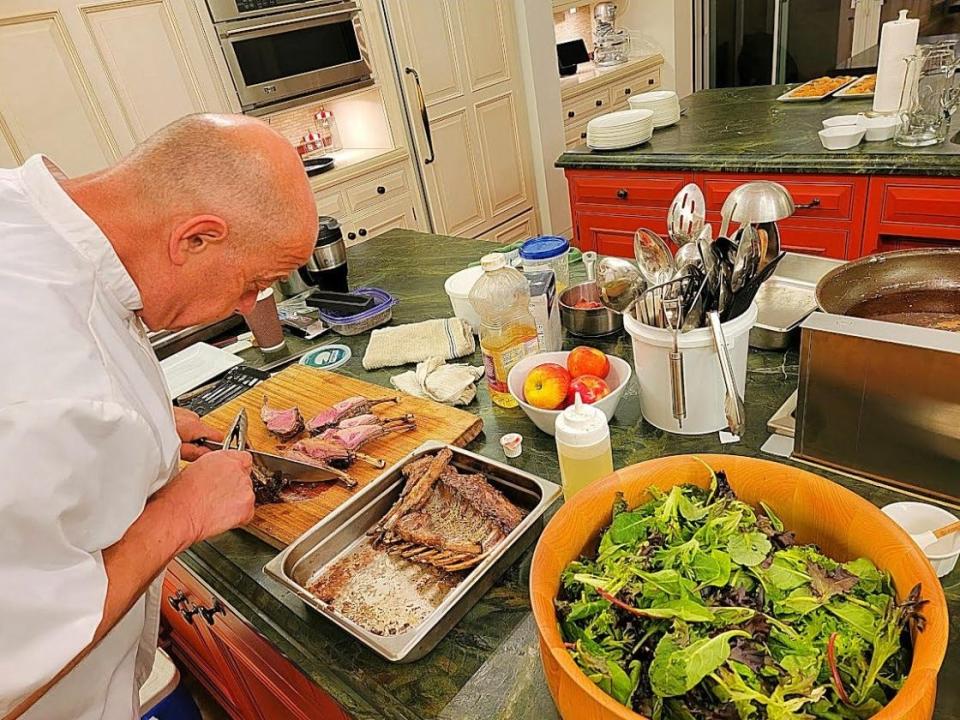Op-Ed: In pandemic, Baby Boomers slashed travel, dining. Where will that $1.6 trillion go?
The omicron surge is in rapid decline across the nation. The carnage left behind is indisputable, with over 900,000 deaths to date and hundreds of thousands of people who required hospitalization along the way.
Even as case counts drop precipitously, the virus is not going away. The challenge now faced is how the nation transitions from a pandemic environment to an endemic environment.
'Getting better every week': IU Health hospitals try to return to normal after omicron
COVID: Signs of the next surge could be lurking in Carmel's sewage
The vaccines have been the ticket to safety for many, particularly those over 50 years old. This group has also been most receptive to vaccination, given their personal risk to the virus.
This age group includes all Baby Boomers. Even with the protections offered by the vaccines, they continue to be at risk for severe disease, with each passing year making them more vulnerable. As such, some fraction of them may alter their lifestyles in a manner that reduces their risk of virus exposure.
What impact could such change have on the economy?
The Baby Boomers possess a significant share of the nation’s wealth and most importantly for the economy, a large amount of disposable resources. During the pandemic, they accumulated more than $1.6 trillion in excess savings. This is due to years of saving, coupled with mostly healthy stock and real estate markets.
How will Baby Boomers respond to an environment where they continue to be vulnerable to on-going circulation of an endemic virus? Which industries will be most affected?
Baby Boomers love leisure travel. Whether it is a destination trip or a cruise, they enjoying being on the go to experience new sites and attractions. However, given the elevated COVID-19 risk exposure associated with travel, particularly long distance and international travel, some Baby Boomers will curtail such excursions, placing headwinds on the cruise line industry well into the future. Even if just one-half of one percent of all Baby Boomers forego one trip or cruise this year, that represents 350,000 fewer excursions. At an average of $1,500 spent per trip per person, this translates into over $500 million of less revenue for the travel and leisure industry.
Baby Boomers love to eat out, enjoying fine dining prepared for and served to them. The problem is that restaurants have been a vulnerable location for virus transmission for obvious reasons; it is difficult to eat while wearing a N95 face mask. With the recently updated CDC face mask guidelines, face masks will be worn by fewer people in general, making it easier for the virus to continue to circulate. This means that Baby Boomers will continue to opt for less dining out and more at-home eating. They already spend a higher percentage on wine than their percentage of the population. This trend will continue and become even more skewed. Given this uptick in demand, more food delivery services will sprout up to fill this need, providing restaurant quality offerings delivered directly to people’s homes.

Baby Boomers will become less mobile by choice. This means that at-home entertainment through video streaming and cable services will continue to be a big ticket item for them. More services targeted to their interests will appear, making them a well-defined captive audience for such products.
Indiana: Netflix reportedly acquires film based on notorious 'Demon House' exorcism
By spending less of their disposable income, Baby Boomers will be more inclined to provide more for their families, either with support for grandchildren education, or larger inheritances. Charitable organization may also benefit from such excess income.
As the virus that causes COVID-19 continues its trajectory to becoming endemic, Baby Boomers will continue to remain cautious, given their vulnerability that will only grow with each pass year.
Sheldon H. Jacobson, Ph.D., is a founder professor of Computer Science and the Carle Illinois College of Medicine at the University of Illinois at Urbana-Champaign. He applies his expertise in data-driven risk-based decision-making to evaluate and inform public health policy.
This article originally appeared on Indianapolis Star: Op-Ed: COVID-19 alters Baby Boomers age group spending habits

